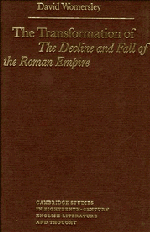2 - Hume
Published online by Cambridge University Press: 05 September 2013
Summary
Wee envy the present, and reverence the past
JonsonSo long as we confine our speculations to trade, or morals, or politics, or criticism, we make appeals, every moment, to common sense and experience …
HumeWe have recently been reminded that Hume was for long more famous as an historian than as a philosopher. It seems remarkable that the now largely unread History of England should ever have been valued as a more significant achievement than Hume's more narrowly ‘philosophical’ work. Yet Hume seems to have turned to history in an attempt to find the celebrity which had eluded him as an epistemologist; and his acquaintance with Montesquieu presumably showed him that he could be an historian without sacrificing his intellectual probity.
Reflection on these topics very quickly becomes thought about how and to what extent Hume's philosophical writings, particularly those which touch on historiographic issues, influenced his practice as an historian. Hume published his History of England between 1754 and 1761, and one might think, therefore, that it is a straightforward realisation of the theorising on historiography which he had developed in his philosophical and discursive works of the previous two decades. Such a supposition might seem even more probable were one to notice that, for Hume, history and philosophy share the same purpose.
- Type
- Chapter
- Information
- Publisher: Cambridge University PressPrint publication year: 1988

